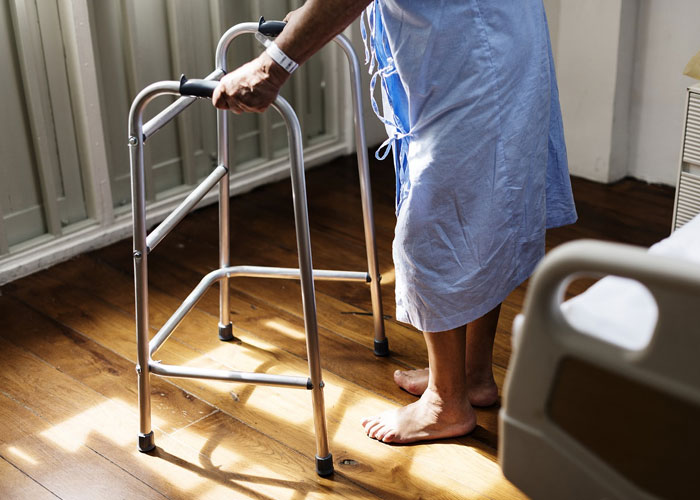Ensuring That Hospital Visits Always Have the Best Possible Outcome
When it comes to delirium and the elderly, many people only think of this condition as a symptom of dementia. The truth, however, is that a delirium episode can happen to a senior for any number of reasons, including the case of hospital delirium. In this post, we’ll go over what hospital delirium is, what you can do about it, and how you can protect your senior loved one.
What Is Hospital Delirium?
Hospital delirium is not an issue that is commonly discussed, but if you are helping to care for an older individual (either personally or professionally), then it is important to know about it. Delirium itself is a state of mental confusion and impaired mental function that is typically brought on as a consequence of mental or physical stress.
What many people do not realize is that episodes of delirium are very common during hospitalization, particularly after surgery. In fact, as many as half of older hospital patients may have at least one delirium episode, especially if they have dementia, have had delirium in the past, or are in the hospital for surgery. It is important to note that dementia is not a pre-requisite for delirium in older people.
What Can You Do About Hospital Delirium?
It is important to address hospital delirium, as it is linked with far worse health outcomes for hospitalized seniors. Hospital staff may not recognize it, and patients are more likely to put themselves in risky situations if they are experiencing delirium. In addition, hospital delirium can be triggered by a variety of factors, so it may be difficult to pin down if or why it is happening.
The good news is that the National Institutes of Health say that around 40 percent of delirium cases are preventable. Here are a few tips on how to avoid or deal with hospital delirium. First, it’s important to note that in many cases, the hospital staff may be tempted to tie down someone who is experiencing hospital delirium. However, this can agitate the person further, and should only used as a last resort.
The first thing to consider is making sure the hospital that the senior is residing in has a delirium prevention plan. If they do not, see if you can transfer your elderly loved one to a hospital that does.
Failing that, there are a few other things you can try:
- Make sure the person gets enough sleep:A well-rested brain may be less likely to experience delirium. If the nurses can keep the person’s room dark and quiet at night and not interrupt sleep for batteries of tests and checks, this is possible. Sleeping pills, however, should be avoided, as they may trigger or exacerbate symptoms.
- Reduce stress:Reduce stress in any way possible. This often means making sure the environment is not overstimulating, with a minimum of loud noise and activity, as well as creating a soothing environment, which may include pictures of and the company of loved ones, soft music, or comfort items.
- Make sure the person can see and hear clearly:The more the patient is able to accurately take in the real world, the better equipped they are to avoid confusion. Make sure they have any necessary hearing aids or vision prescriptions to facilitate this.
If your senior loved one is already in the midst of a delirium episode, first protect the person from injury, and then take steps to discover and reverse any triggers that may have caused the condition. In certain instances, the right medication can also help.
For help finding quality care for your senior loved one in the Portland or Northern California areas, contact Global Placement Services.







